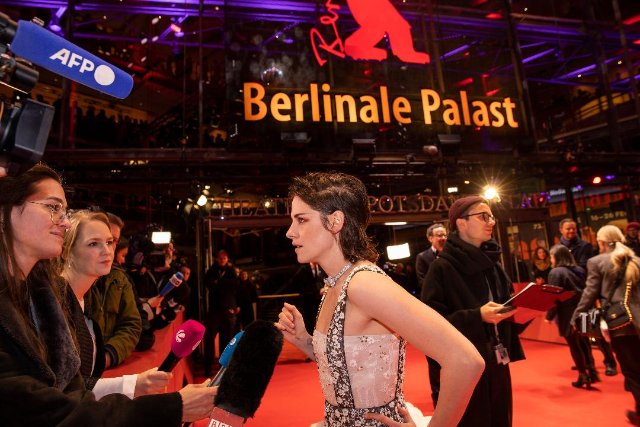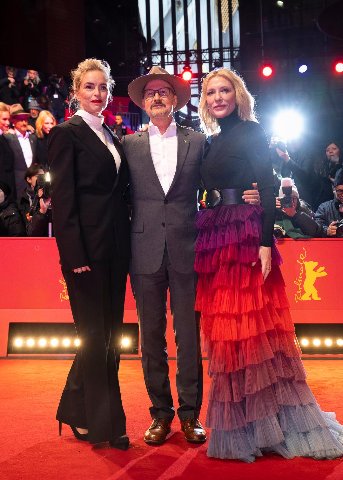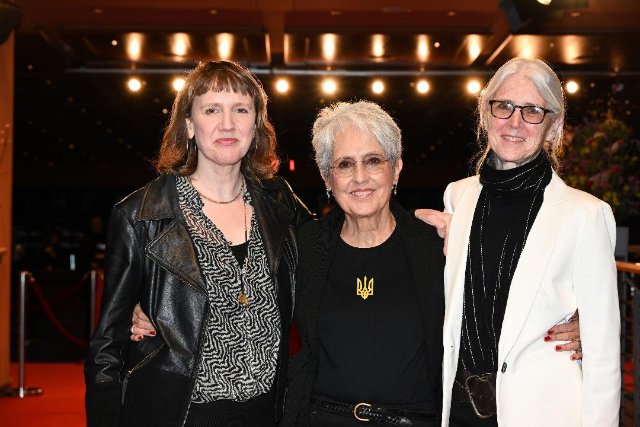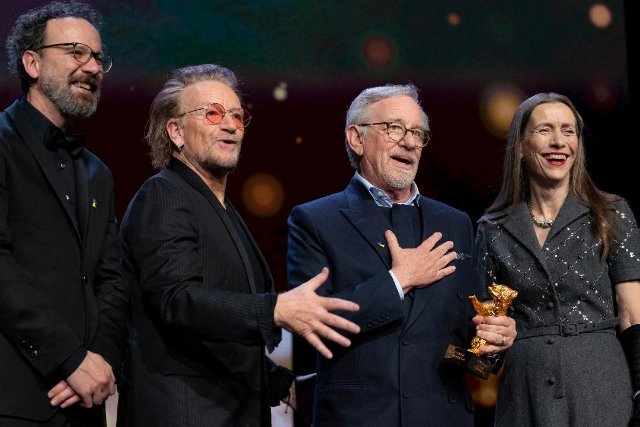73rd Berlinale
Februray 16 to 26, 2023
By: Angelika Jansden - Mar 01, 2023
The 73rd Berlinale of Berlin, Germany
Too bad and not long enough! The 73rd Berlinale from February 16 to 26 is film history. After the limited screenings during the Covid years, the festival became an obvious success and an almost palpable sigh of relief could be sensed - the movie theaters were full again. People enjoyed waiting by the entrances of the movie houses and were milling around to catch a glimpse of the international movie stars at the opening venues but especially around Potsdamer Platz and the Berlinale Palace – the center of the festival. The largest international film festival with a participating audience was in full swing again with fully booked presenter venues.
Hollywood had sent its glitter section. Steven Spielberg received the Honorary Bear for his life time accomplishments. At the award ceremony his newest, and his most personal movie, The Fabelmans had its German opening. Berlin just simply embraced the film and the director. Dame Helen Mirren dazzled on the red carpet and received accolades for her depiction of Golda, the late Israeli Prime Minister in Berlinale Specials. Sean Penn brought the house down, or better to standing ovations, with his documentary Superpower about Wolodymyr Selenskyi and his war battered Ukraine, shown in the Competition. John Malkovich, and to a lesser degree Chaplin's daughter, Geraldine Chaplin, created a theatrical happening of classical dimensions with the film Seneca - Or the Creation of Earthquakes. This tragedy about the Roman philosopher Seneca is a powerful German production shown at the Berlinale Specials. Cate Blanchett impressed as star-conductor of a big Berlin orchestra in Tár shown in the Berlinale Special as well. The role was a welcome chance for the actress to shine in her beloved Berlin.
But not only Hollywood came. Joan Baez walked the red carpet and presented a movie about her active roles as singer and fighter for civil rights in the US production I Am A Noise. It was presented in the Panorama series. Highly unusual, but greatly combining film and documentary aspects, was Tina Satter's Reality with the fabulous Sydney Sweeney playing a whistleblower using original documents from a FBI house search. It ran in the Panorama series. How the drama evolves, depicting the whistleblower as an innocent at first and slowly have her being uncovered as a committed thief of classified documents out of conviction for doing the honorable thing, is simply overwhelming.
Although the actress, screenwriter and director Kristen Stewart signed as the president of the International Jury, the Competition, neither of the above mentioned films made it into its bear selection. The Golden Bear for best film went to the French/Japanese documentary Sur L'Adamant about a floating day-care center for people with mental disorders. The Silver Bear, the Grand Jury Prize, was bestowed on the German movie running in the Competion Roter Himmel ("Red Sky) by Christian Petzold, where a yound, aspiring writer and his three friends, vacationing on a Baltic Island, struggle with the direction of their future lives. Mal Viver, the Portuguese/French co-production in the Competition fetched the Silver Bear Jury Prize. An old struggle between the sisters running a hotel ends in tragedy, when one resolves the bitterness by drowning herself in the pool. A big surprise was the Silver Bear for Best Leading Performance. It went to the eight-year old Sofia Otero in the Spanish work 20.000 Especies de Abejas (20.000 Kind of Bees). Here, the eight-year-old child struggles with her name, until she vacations with her mother in the country and encounters the life of bees. The Silver Bear for Best Director went to Philippe Garrel for the French/Swiss co-production Le Grand Chariot, about the work and consequent demise of a family of puppeteers.
As the offerings at the Competition were far reaching so were the emotions that were reflected in the movies of the entire festival. The documentaries fared best, probably because of the unstable political situation in Europe. Something of account-taking of the world's before and after Covid lives, and of the fragility of human relations as a result could be felt. Perhaps this is the most important outcome of the 73rd Berlinale – a documentation of mankind's ways within turbulently changing life-styles and times.




